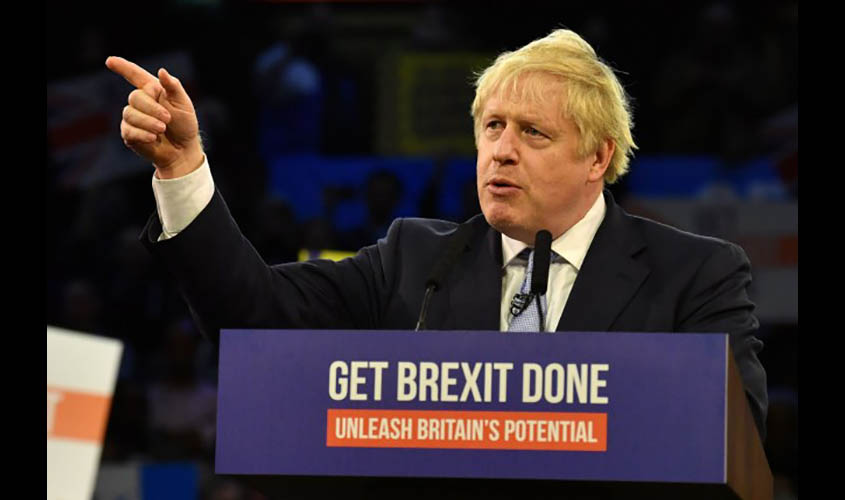London: “Get Brexit Done” won the day, Boris Johnson successfully steered Leavers and a respectable proportion of Remainers who were terrified of the Corbyn alternative, towards the Conservatives achieving a decisive majority of 80, with an intake of 109 MP’s. This is the best Tory result since Margaret Thatcher and the worst Labour result for 80 years.
Corbyn’s policy of neutrality in a second referendum was perceived as trying to stop Brexit and the Labour Party’s move to the left was disastrous decision, plus their track record of anti-Semitism resulted in a total rejection of Corbynism. Evidently Corbyn was not trusted with National Security or with the economy, despite the “fully costed policies” in their manifesto nobody believed Labour could deliver, and Labour did not satisfy the cultural and societal values of the working class, such as providing decent education and enforcing law and order.
The abysmal weather nationwide saw a lower turnout than in 2017, but Conservatives have won seats that have been Labour for years with Johnson’s One Nation, public services investment and strong economy agenda.
Wales have elected their first female Conservative MP, and dissenting Tory Remainers lost their seats;“Jo Swinson’s Liberal Democrats” were short lived as Jo Swinson lost her seat, the Richmond constituency will now rue the day they voted LibDem and lost Zac Goldsmith, a champion of everything that is important and relevant at the moment. The DUP lost 2 seats with Sinn Féin defeating the DUP’s Westminster Leader Nigel Dodds in North Belfast.
Labour defence outside London was woeful, SNP now have 48 seats and Nicola Sturgeon has lost no time in reasserting her demands for a new Scottish Independence referendum, Sajid Javid has said no chance of that as if she was an irrelevance.
What does Johnson’s majority mean now? The Deal is most likely to go to the House of Commons on Friday, with 364 seats in Tory hands it is sure to pass, Johnson has the numbers to wipe out any opposition from within and from Labour, there will be hyper activity and less rancour in the House of Commons leading up to Brexit day 2020 on January 31st. A mini reshuffle is possible before Christmas, with a proper reshuffle post-Brexit to tackle the future relationship with the EU and trade agreements. Johnson’s team will enter negotiations with the EU with a winner’s confidence, but will the EU still be determined to control the rules of trade.
The Times reported that it is “inevitable the Department for Exiting the European Union (Dexeu) would be merged with the Department for International Trade to create a super-department”, with Michael Gove likely at the helm. Johnson has 5 years to get the relationship with EU on the right footing, unless the Fixed Term Parliament Act is abolished then it would be 4 years.
Many Labour voters appear to have lent their vote to the Tories, many people in the North, the Midlands and Wales where the economy has struggled need rewarding, Johnson plans to keep these voters in the Conservative party, investment awaits and that will unite the country.

